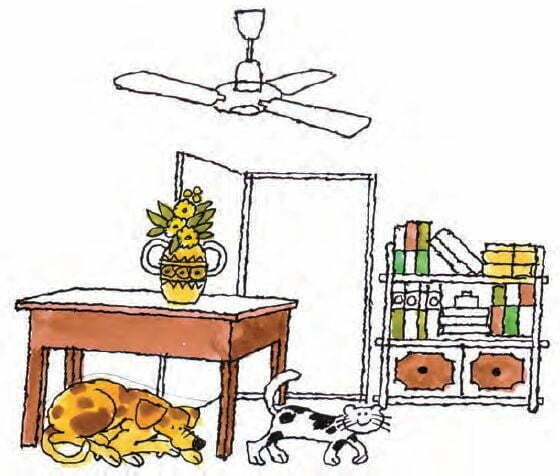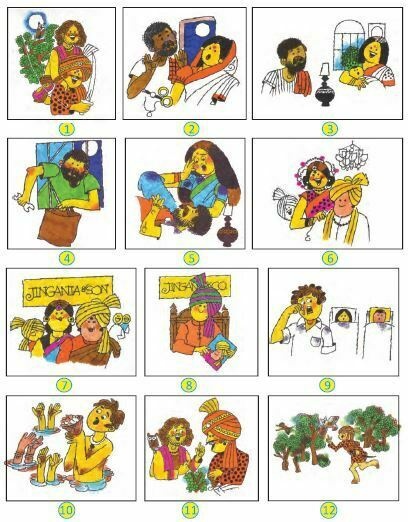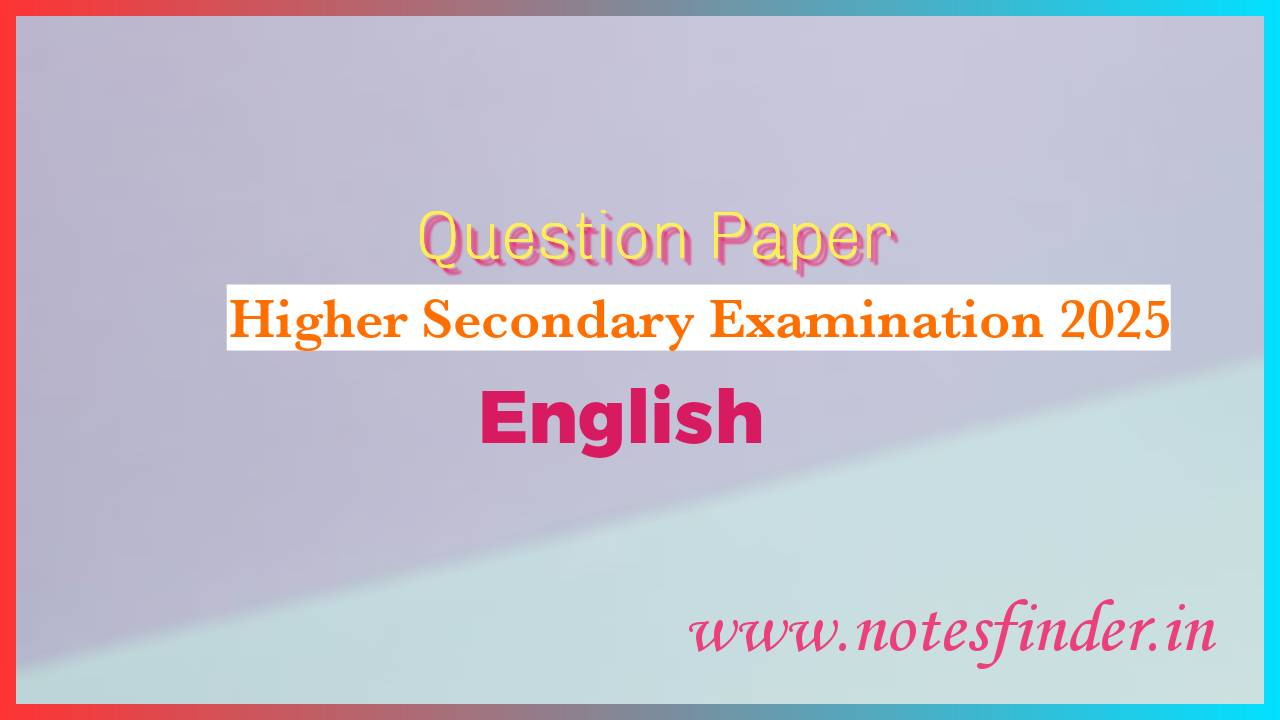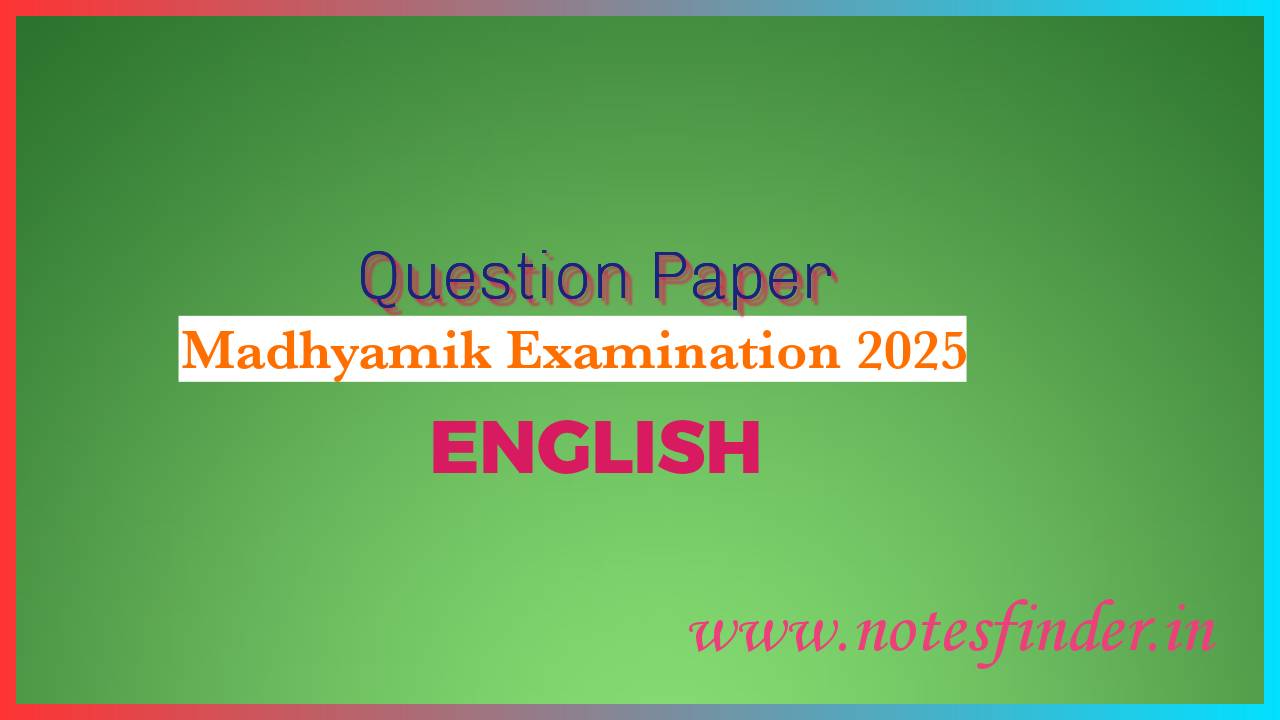The Bird’s Eye Bengali Meaning (বঙ্গানুবাদ) | Class V English
It was a bright and sunny morning.
এটি একটি উজ্জ্বল এবং রৌদ্রোজ্জ্বল সকাল ছিল।
A large group of young boys gathered in the woodland with their bows and arrows.
অল্প বয়সী ছেলেদের একটি বিশাল দল তাদের ধনুক এবং তীর নিয়ে বনভূমিতে জড়ো হয়েছিল।
But they were not just ordinary boys.
তবে তারা কেবল সাধারণ ছেলে ছিল না।
They were the five Pandavas and the hundred Kauravas!
তারা ছিল পাঁচ পাণ্ডব এবং শত কৌরব!
The five Pandava brothers and hundred Kaurava brothers were cousins.
পাঁচ ভাই পাণ্ডব ভাই এবং শত ভাই কৌরব খুড়তুত ভাই ছিল।
But a fierce rivalry between them began to grow even when they were only children.
কিন্তু তাদের মধ্যে চরম শত্রুতা বৃদ্ধি পেতে শুরু করেছিল এমনকি যখন তারা কেবলমাত্র শিশু ছিল।
The royal children learnt the skills of using weapons from Dronacharya.
রাজপরিবারের শিশুরা দ্রোণাচার্যের কাছ থেকে অস্ত্র ব্যবহারের দক্ষতা শিখেছিল।
He was one of the greatest warriors of his time.
তিনি ছিলেন তাঁর সময়ের অন্যতম শ্রেষ্ঠ যোদ্ধা।
He had learnt the secret of powerful weapons from Parasurama.
পরশুরামের কাছ থেকে তিনি শক্তিশালী অস্ত্রের রহস্য শিখেছিলেন।
The Pandavas and the Kauravas were quick to learn.
পাণ্ডব এবং কৌরবগণ শিখতে তত্পর ছিল।
They soon picked up various skills.
তারা শীঘ্রই বিভিন্ন কৌশল শিখে ফেলেছিল।
All the princes learnt the use of all the weapons.
সমস্ত রাজকুমাররা সমস্ত অস্ত্রের ব্যবহার শিখেছিল।
Each of them had their own favourite weapons.
তাদের প্রত্যেকের নিজস্ব প্রিয় অস্ত্র ছিল।
Duryodhana and Bhima favoured the mace.
দুর্যোধন ও ভীম গদার পছন্দ করতো।
Yudhisthira’s choice of weapon was the spear.
যুধিষ্ঠিরের পছন্দের অস্ত্র ছিল বর্শা।
Arjuna was fascinated by bows and arrows.
ধনুক এবং তীর অর্জুনকে মুগ্ধ করেছিল।
The twins Nakula and Sahadeva were most comfortable with swords.
যমজ নকুল এবং সহদেব তরোয়ালে সর্বাধিক স্বাচ্ছন্দ্যবোধ করত।
The Guru treated all his disciples equally.
গুরু তাঁর সমস্ত শিষ্যগণকে সমানভাবে দেখতেন।
But he liked Arjuna the most because Arjuna practised this art with great concentration.
কিন্তু তিনি অর্জুনকে সবচেয়ে বেশি পছন্দ করতেন কারণ অর্জুন এই শিল্পটি অত্যন্ত মনোযোগ দিয়ে অনুশীলন করেছিল।
Soon he became the best archer among all.
শীঘ্রই সে সবার মধ্যে সেরা ধনুর্বিদ হয়ে গেল।
Duryodhana and his brother Dushasana did not like this at all.
দুর্যোধন ও তাঁর ভাই দুশাসন এটা মোটেই পছন্দ করেনি।
Silently, a feeling of dislike grew in their hearts towards the Pandavas.
ধীরে ধীরে, তাদের অন্তরে পান্ডবদের প্রতি অপছন্দের অনুভূতি বৃদ্ধি পেয়েছিল।
One day they openly criticized their Guru for showing favour towards Arjuna.
একদিন তারা তাদের গুরুকে অর্জুনের প্রতি অনুগ্রহ করার জন্য প্রকাশ্যে সমালোচনা করেছিল।
They told him that they were not any less skillful in archery.
তারা তাকে বলেছিল যে তারা তীরন্দাজিতে কোনও অংশেই কম দক্ষ নয়।
As a reply to their criticism, Dronacharya arranged for a test to pick out the best archer among them.
তাদের সমালোচনার জবাব হিসাবে দ্রোণাচার্য তাদের মধ্যে সেরা তীরন্দাজ বাছাই করার জন্য একটি পরীক্ষার ব্যবস্থা করেছিলেন।
On that particular day, Guru Dronacharya asked the students to gather by the woodland near his ashram.
সেই নির্দিষ্ট দিনে গুরু দ্রোণাচার্য ছাত্রদের তাঁর আশ্রমের কাছে বনভূমিতে জড়ো হতে বলেছিলেন।
He had placed a wooden bird with a prominently painted eye on one of the trees.
তিনি একটি গাছের মধ্যে পরিস্কারভাবে আঁকা চোখের একটি কাঠের পাখি রেখেছিলেন।
The teacher called all his disciples and said, “Look my children, a wooden bird is sitting on that far-off tree. You have to hit the arrow exactly in its eye. Are you ready?”
শিক্ষক মহাশয় তাঁর সব শিষ্যকে ডেকে বললেন, “ দেখ আমার বাছারা, ওই দূরের গাছটিতে একটা কাঠের পাখি বসে আছে। তোমাদেরকে ঠিক তার চোখে তীরটি দিয়ে আঘাত করতে হবে। তোমরা কি প্রস্তুত?”
Everyone nodded. First the eldest Yudhisthira was invited to try his skill. When Yudhisthira was ready, Dronacharya asked, “Yudhisthira, please tell me what you can see.”
সবাই মাথা নাড়িয়ে সম্মতি জানাল। প্রথমে সবচেয়ে বড় যুধিষ্ঠিরকে তার দক্ষতার চেষ্টা করার জন্য আমন্ত্রণ জানানো হয়েছিল। যুধিষ্ঠির যখন প্রস্তুত হল, দ্রোণাচার্য জিজ্ঞাসা করলেন, “যুধিষ্ঠির, দয়া করে আমাকে বল তুমি কি দেখতে পাচ্ছ।”
Yudhisthira replied innocently, “Gurudev, I can see you, the tree, people around me and the bird!”
যুধিষ্ঠির সহজভাবে জবাব দিয়েছিল, “গুরুদেব, আমি আপনাকে,গাছটিকে, আমার চারপাশের মানুষ এবং পাখিটি দেখতে পাচ্ছি!”
Dronacharya replied, “All right. Leave your bow and arrow and go.”
দ্রোণাচার্য জবাব দিলেন, “ঠিক আছে। তোমার ধনুক এবং তীর ফেলে চলে যাও।”
Yudhisthira was surprised, but he obeyed his guru.
যুধিষ্ঠির অবাক হয়েছিল, কিন্তু সে তাঁর গুরুর কথা মেনে নিল।
He silently walked back to his brothers without a question.
সে নিঃশব্দে কোনও প্রশ্ন ছাড়াই তার ভাইদের কাছে ফিরে গেল।
Next was the turn of Duryodhana.
এরপরে দুর্যোধনের পালা।
Dronacharya asked, “Oh! The eldest brother of Kaurava, may know what is visible to you at this movement?”
দ্রোণাচার্য জিজ্ঞাসা করলেন, “ওহ! কৌরবের বড় ভাই, হয়তো জানে এই গতিবিধিতে তোমার কাছে কী দৃশ্যমান?”
Duryodhana replied, “Gurudev, I can see the bird, the tree, the leaves, the fruits, another bird…”
দুর্যোধন জবাব দিয়েছিল, “গুরুদেব, আমি পাখি, গাছ, পাতা, ফল, অন্য পাখি দেখতে পাচ্ছি …”
But before he could complete, Dronacharya said, “You can go!”
তবে সে সম্পন্ন করার আগেই দ্রোণাচার্য বলেছিলেন, “তুমি যেতে পার!”
Duryodhana was angry.
দুর্যোধন রেগে গেলেন।
He threw the bow and arrow to the ground and stood aside.
সে ধনুক এবং তীর মাটিতে ফেলে দিয়ে একপাশে দাঁড়িয়ে গেল।
Similar questions were put to Bhima, Nakul, Sahadeva and others.
একই রকম প্রশ্ন ভীম, নকুল, সহদেব এবং অন্যদের কাছে করা হয়েছিল।
From them too, Dronacharya got answers similar to those given by Yudhisthira and Duryodhana.
দ্রোণাচার্য তাদের কাছ থেকেও যুধিষ্ঠির ও দুর্যোধনের দেওয়া উত্তরের মত একই উত্তর পেয়েছিলেন।
Lastly, it was the turn of Arjuna.
সর্বশেষে ছিল অর্জুনের পালা।
He was ready with his bow and arrow.
সে তার তীর এবং ধনুক নিয়ে প্রস্তুত ছিল।
The Guru asked him, “O Arjuna, will you tell me what is being observed by you?”
গুরু তাকে জিজ্ঞাসা করলেন, “হে অর্জুন, তুমি কি আমাকে বলবে যে তোমার দ্বারা কী লক্ষিত হচ্ছে?”
“I can see only the eye of the bird,” replied Arjuna without breaking eye contact with his target.
“আমি কেবল পাখির চোখ দেখতে পাচ্ছি,” অর্জুন তার লক্ষ্যবস্তুর সাথে চোখের যোগাযোগ না সরিয়ে উত্তর দিয়েছিল।
“Can’t you see the trees and the sky, or, perhaps the branch, where the bird is sitting?” his teacher asked.
“তুমি কি গাছ এবং আকাশ দেখতে পাচ্ছ না, বা সম্ভবত ডাল, যেখানে পাখি বসে আছে?” তার শিক্ষক জিজ্ঞাসা করেছিলেন।
“No Gurudev, all I can see is the eye of the bird, and nothing else,” said Arjuna, holding his bow steadily.
“না গুরুদেব, আমি যা দেখতে পাচ্ছি তা হল পাখির চোখ, আর অন্য কিছুই নয়,” অর্জুন স্থিরভাবে ধনুক চেপে ধরে বলল।
Now Dronacharya was very glad.
এখন দ্রোণাচার্য খুব খুশী হয়েছিলেন।
He praised Arjuna for his immense concentration.
তিনি অর্জুনের গভীর মনযোগের জন্য তাঁর প্রশংসা করেছিলেন।
“With a smile on his face, Dronacharya said, “Shoot!” With a loud twang, the arrow sprang from the bow and struck the bird’s eye.
“মুখে হাসি নিয়ে দ্রোণাচার্য বললেন, “তীর ছুরে দাও!” জোরে টং শব্দ করে তীরটি ধনুক থেকে ছুটে গিয়েছিল এবং পাখির চোখে আঘাত করেছিল।
Dronacharya turned to the other princes.
দ্রোণাচার্য অন্য রাজপুত্রদের দিকে ফিরলেন।
He said, “Did you all understand the reason of this test? Always remember, when you aim for something, you must look at the target and nothing else.
তিনি বলেছিলেন, “তোমরা কি এই পরীক্ষার কারণ বুঝতে পেরেছিলে? সর্বদা মনে রাখবে, যখন তোমরা কোনও কিছুর উপর লক্ষ্য স্থির করবে, তখন তোমাদেরকে অবশ্যই শুধুমাত্র লক্ষ্যটির দিকে তাকাতে হবে এবং অন্য কিছু নয়।
Only with intense concentration can one strike the target.
তীব্র মনসংযোগ এর সাহায্যেই একজন লক্ষ্যটিকে আঘাত করতে পারে।
All of you saw other things like the trees, the fruits, the leaves and the people because you were not concentrating on the task given to you.
তোমরা সকলেই অন্যান্য জিনিস দেখেছিলে যেমন- গাছ, ফল, পাতা এবং মানুষজন কারণ তোমরা তোমাদের দেওয়া কাজের প্রতি মনোনিবেশ করোনি।
It was only Arjuna who had actually concentrated. So now all of you know why Arjuna is the best student!”
এটি কেবলমাত্র অর্জুনই ছিল যে প্রকৃতপক্ষে মনোনিবেশ করেছিল। সুতরাং এখন তোমরা সবাই জানতে পেরেছ অর্জুন কেন সেরা ছাত্র!”
Dronacharya’s test silenced the Kauravas, and all understood that Arjuna was, indeed, the best archer.
দ্রোণাচার্যের পরীক্ষা কৌরবদের চুপ করে দিয়েছিল এবং সকলেই বুঝতে পেরেছিল যে অর্জুন সত্যিই সেরা ধনুর্বিদ।
The Bird’s Eye (Lesson 9) Question Answers | Class V English
ACTIVITY 1
Let’s tick the correct answer:
1. Dronacharya arranged a test to
(a) decide the best archer among all.[ √ ]
(b) decide who is the most intelligent boy amongst all.
(c) decide the most disobedient boy amongst all.
2. The Kauravas were
(a) five brothers.
(b) fifty one brothers.
(c) a hundred brothers.[ √ ]
3. Nakul and Sahadeva were most comfortable with
(a) bows and arrows.
(b) swords.
(c) spears.[ √ ]
4. “I can see only the eye of the birds,” said –
(a) Dronacharya.
(b) Dushasana.
(c) Arjuna. [ √ ]
5. All the children gathered in the woodland near
(a) a small hut where Guru Dronacharya lived. [ √ ]
(b) a pond where a crane lived.
(c) a palace where their parents lived.
6. Duryodhana was
(a) the eldest brother of the Pandavas.
(b) the eldest brother of the Kauravas.[ √ ]
(c) the youngest brother of the Kauravas.
7. Ultimately the test revealed that
(a) Arjuna was the best archer. [ √ ]
(b) Arjuna was the most clever student,
(c) Arjuna was not at all a good archer.
ACTIVITY 2
Write ‘T’ for true and ‘F’ for false statements:
(a) Dronacharya was one of the greatest poets of his time. [ F ]
(b) The bird was made of paper.[ F ]
(c) Dronacharya was a disciple of Parasurama. [ T ]
(d) Dronacharya was not pleased with Arjuna’s concentration. [ F ]
(e) Yudhisthira was very obedient to his Guru. [ T ]
(f) All the children were learning various skills happily. [ T ]
ACTIVITY 3
Fill in the chart with information from the text.
| Name of the prince | His favourite weapon |
| Yudhisthira | Spear |
| 1.Duryodhana 2. Bhima | Mace |
| 1. Nakula 2. Sahadeva | Sword |
| Arjuna | Bow and arrow |
ACTIVITY 4
Let’s answer the following question:
(1) Who was the Guru of Dronacharya?
Ans: Parasuram was the Guru of Dronacharya.
(2) Where was the bird placed?
Ans: The bird was placed on the far-off tree.
(3) What did Yudhisthira see?
Ans: Yudhisthira saw his Gurudev, the tree, people around him and the bird.
(4) Why did Dronacharya like Arjuna the most?
Ans: Dronacharya liked Arjuna the most because Arjuna practised the art of archery with great concentration.
(5) What is most Important in hitting a target?
Ans: The most important in hitting a target is intense concentration.
ACTIVITY 5
Write the opposite of the following words.
(1) Dark – Bright
(2) Sad – Glad
(3) Never – Always
(4) Worst – Best
(5) Everything – Nothing
(6) Invisible – Visible
ACTIVITY 6
Match the words in column A with their meaning in column B:
Answer:
| A | B |
| Disciples | Students |
| Royal | Magestic |
| Immense | Huge |
| Silenced | Kept quiet |
| Target | Goal |
| Prominently | Distinctly |
| Observed | Noticed |
ACTIVITY 7
Let’s fill in the gaps with words given in the box:
(1) We were surprised to hear the sad news.
(2) The players are ready for the game.
(3) Always try to keep yourself away from fierce animals.
(4) Please give me a glass of water.
(5) Renuka invited all her friends on her 10th birthday.
ready, surprised, fierce, invited, please
ACTIVITY 8
Let’s write ‘a’ or ‘an’ or ‘the’ in the boxes below:
(1) He always speaks the truth.
(2) Nila has seen the Tajmahal.
(3) Mr. Sen is an honest man.
(4) Amal is drawing the map of India.
(5) The Ganga is a holy river.
(6) Have you seen an owl?
(7) Grandfather gave me a doll.
ACTIVITY 9
Let’s look at the picture below:

Let’s fill in the blanks with words from the box and describe the room:
(1) There is a table at the centre of the room.
(2) There is a vase on the table.
(3) Some flowers are in the vase.
(4) A dog is lying under the table.
(5) A fan is hanging from the ceiling.
(6) A book shelf is beside the door.
(7) A cat is walking into the room.
from, in, under, into, beside, on, at
ACTIVITY 10
Some words are given below. Let’s put a tick beside those words which are adverbs:
Answer:
• Silently [ √ ]
• Now [ √ ]
• Remember
• Soon[ √ ]
• Aim
• Only [ √ ]
• Loud
• Near [ √ ]
• Try
• Exactly [ √ ]
ACTIVITY 11
Let’s fill in the blanks with the adverbs given below:
(1) We opened the lid of the box carefully.
(2) The man was very poor. But he lived honestly.
(3) We should always try to help others.
(4) Yesterday there was an accident near Renu’s house.
(5) Soldiers fight bravely for their county.
(6) I never went to zoo.
very, never, always, carefully, bravely, honestly, near
Let’s look at the set of pictures below. The pictures are telling us a story. It is a story from ‘Betal Panchabingshati’.

Ans:
• Betal put forward a puzzle to Vikram.(1)
• A woman called Leelavati married a thief and the thief decided to give up stealing.(2)
• After a son is born the thief found that he had no money to support his family.(3)
• He went back to stealing.(4)
• The thief died.(5)
• Leelavati married a businessman.(6)
• But the young boy could not make out which pair of hand was his father’s. he recalled his mother once mentioning his real father.(7)
• The businessman loved his family and reared the child well. The child grew up and took charge of the business.(8)
• Leelavati and the businessman died.(9)
• The young boy came to a river-side to perform the last rites. Three pair of hand came out claiming the offering. The boy recognised his mother’s hands.(10)
• Betal stopped the story and asked Brikram, “Now tell me which father was finally given the offering?”(11)
• Bikram replied, “The businessman, as he loved and brought up the child.” Betal flew away.(12)
Read More⬇️
- Lesson 1 India: Superpower in Cricket
- Lesson 2 A Feat on Feet
- Lesson 3 Phulmani’s India
- Lesson 4 Memory in Marble
- Lesson 5 My School Days
- Lesson 6 The Clever Monkey
- Lesson 7 The Rebel Poet
- Lesson 8 Buildings to Remember
- Lesson 9 The Bird’s Eye
- Lesson 10 A Great Social Reformer
- Lesson 11 The Finishing Point
- Lesson 12 Beyond Barriers



